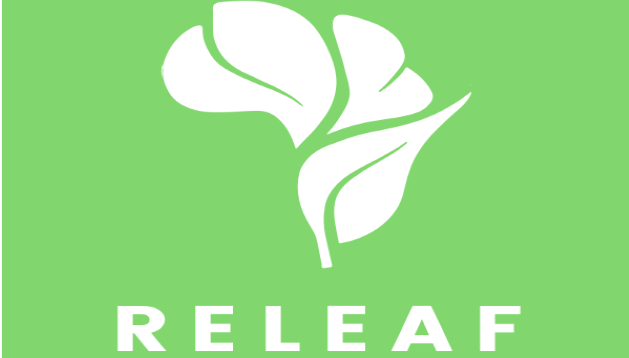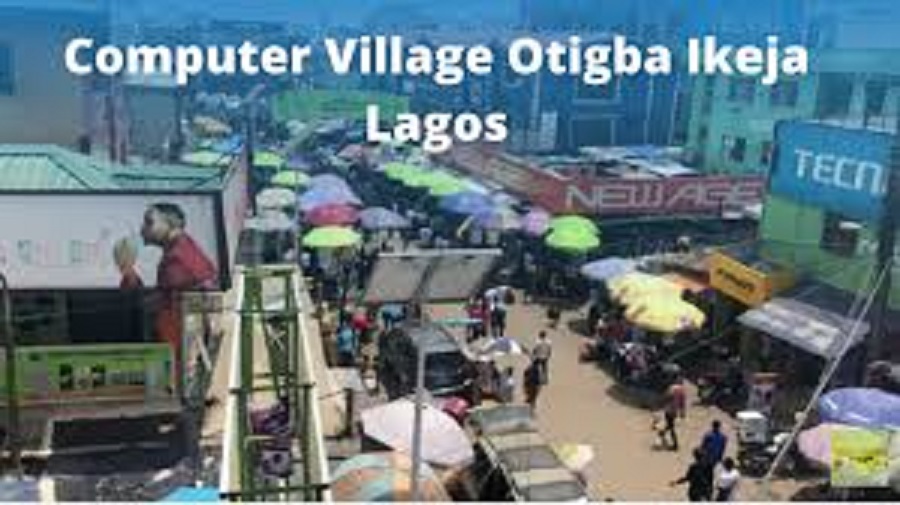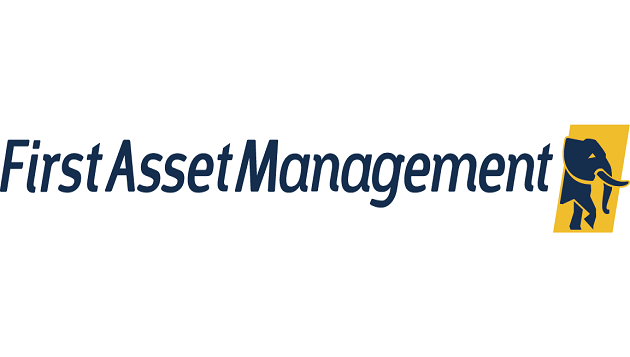News
Releaf Secures $3.3M Pre-series A Funding, Unveils New Technologies

Releaf, a technology company that makes it easier for consumer goods manufacturers in Africa to access high-quality ingredients for their factories, has raised $3.3 million in an oversubscribed Pre-Series A funding round.

The new funding will support the launch of two new technologies: Kraken II – a portable version of its award-winning palm nut de-sheller and SITE – a geospatial mapping application that informs the most profitable positioning of food processing assets.
The funding round was led by Samurai Incubate Africa, who re-invested after leading Releaf’s seed round, with participation from Consonance Investment Managers. Stephen Pagliuca (Chairman of Bain Capital) and Jeff Ubben (Board member at World Wildlife Fund and Founder of Inclusive Capital Partners) also invested.
SITE was developed in collaboration with Stanford University’s Professor David Lobell, a MacArthur “Genius” Fellow and Director of the Center on Food Security and the Environment, whose team led the refinement of the age identification process for oil palm trees in Nigeria.
This analysis provided foundational yield data for the first layer of SITE. The application leverages cutting-edge geospatial mapping tools to determine how much oil palm is planted in an area and their annual yields, alongside Releaf’s proprietary data on soil type, rainfall, farmer productivity and 3rd-party data from organizations like the International Institute of Tropical Agriculture (IITA), Foundation for Partnership Initiatives in the Niger Delta (PIND) and Rocky Mountain Institute (RMI) to deliver a dynamic view of farming activity.
Releaf will use this dynamic data set to train Reinforcement Learning Models in SITE that identify the most optimal positioning of supply chain infrastructure for consumer goods manufacturers, creating an effective link with Africa’s decentralized farming system.
Kraken II is a portable, lower-cost version of Releaf’s Kraken – West Africa’s most advanced palm nut de-sheller. It is just as efficient as its static predecessor, costs half as much and can attain 3x profitability because it can be transported to high density farming areas, eliminating more than 80 percent of margin-eroding logistics costs.
The combination of Kraken II’s portability and SITE’s placement and route planning capabilities enables Releaf to target the best opportunities across Nigeria’s oil palm belt rather than being limited to sourcing crops within 100 kilometers of a fixed processing site like existing food processors.
According to Uzoma Ayogu, CTO and co-founder of Releaf, “SITE and Kraken II are the next steps in our plan to fundamentally transform the efficiency of agricultural supply chains in Africa and we are excited to have partnered with an exceptional cohort of investors and collaborators to roll out these technologies.
To make food supply chains profitable, we must maximize extraction yields with leading processing technology and minimize logistics costs by bringing processing capacity closer to farmers.
Before Releaf, stakeholders had to choose between one or the other – large factories had great technology but were far away, leaving most farmers with rudimentary technology to process their crops. We’re now able to maximize both.”
Africa will represent 40% of the human population by the end of the 21st century and the fast-moving consumer goods market will emerge as its first globally relevant industrial sector.
Releaf’s technology is designed to accelerate this industrialization while ensuring inclusive success for the planet, farmers, food factories, and consumers in one of the greatest economic opportunities globally.
Since launching in 2021, Releaf has used its supply chain technology to process more than 10 million kilograms of palm nuts and grown its monthly revenue 7X year on year.
The company has also secured more than $100 million in supply contracts from leading consumer goods manufacturers, including Presco, PZ Cussons, and more. The company’s valuation has tripled since its seed round a year ago.
Rena Yoneyama, Managing Partner at Samurai Incubate Africa, contributed, “Releaf’s success with its pilot Kraken validates its thesis, and we are excited to continue supporting their ambitious vision to create efficient supply chains within Africa’s agricultural market.
They have added key members to their management team and continue to impress us with their rapid commercial growth and technological development. We look forward to more of the same success as the team rolls out Kraken II and SITE.”
Professor David Lobell from Stanford University said, “I enjoyed working with Releaf and using our tree height algorithm to establish the correlation between oil palm age and height to help farmers to get a better understanding of their future yields and make better data-driven decisions on sustainable replanting.
“There is a great opportunity to unlock Africa’s unique agricultural potential by leveraging remote sensing solutions, and I believe this partnership will be a catalyst.”
News
SERAP Sues NNPC over Alleged Missing ₦500Bn, Seeks Accountability

Socio-Economic Rights and Accountability Project (SERAP) has filed a lawsuit against the Nigerian National Petroleum Company (NNPC) Limited over its failure to account for the alleged missing ₦500 billion, which the company reportedly failed to remit to the Federation Account between October and December 2024.

SERAP’s legal action comes after allegations made by the World Bank, which revealed that out of the ₦1.1 trillion generated from crude sales and other income sources in 2024, NNPC only remitted ₦600 billion.
This left a deficit of ₦500 billion, which remains unaccounted for.
According to the lawsuit filed at the Federal High Court in Lagos on Friday, the organisation is demanding that NNPC explain the whereabouts of this missing amount.
The suit, number FHC/L/MSC/553/2025, seeks to compel NNPC to account for the missing funds.
In the legal documents, SERAP is asking for an order of mandamus to direct NNPC to account for the alleged missing ₦500 billion.
The organisation also wants the court to instruct NNPC to invite appropriate anti-corruption agencies to investigate the spending and whereabouts of the funds.
Furthermore, SERAP requests that those responsible for the missing money be identified, held accountable, and handed to relevant authorities for investigation and prosecution.
The lawsuit follows NNPC’s response to SERAP’s Freedom of Information (FoI) request, where the company argued that the FoI Act does not apply to it.
NNPC’s lawyers, Afe Babalola and Co, claimed that the company is exempt from the FoI Act.
SERAP, however, argues that the NNPC must comply with the Nigerian Constitution and the Freedom of Information Act, along with international human rights and anti-corruption standards, in exercising its statutory functions.
In the suit, SERAP emphasizes that the missing funds have significantly contributed to Nigeria’s economic instability, including the country’s high deficit spending and crippling debt crisis.
The organisation argues that the NNPC’s failure to remit these funds has worsened an already precarious economic situation.
SERAP also stresses that the missing oil revenues reflect a broader failure in NNPC’s accountability and transparency. The organisation highlights that the company’s continuing disregard for these principles damages the country’s economic well-being and governance systems.
The lawsuit also references a recent Supreme Court ruling, which declared that the Freedom of Information Act applies to public records in the Federation, including those kept by NNPC. SERAP calls on the court to enforce the application of this ruling in the case at hand.
The suit filed on behalf of SERAP by its lawyers, Kolawole Oluwadare, Ms Oluwakemi Oni, and Ms Valentina Adegoke, read in part, “Nigerians continue to bear the brunt of these missing public funds from the NNPCL meant for the economic development of the country.”
“There is a legitimate public interest in providing the details sought. The NNPC has a legal responsibility to account for and explain the whereabouts of the missing oil money.”
“The country’s oil wealth ought to be used solely for the benefit of the Nigerian people, and for the sake of the present and future generations.”
“Without the full recovery and remittance of the missing ₦500 billion oil revenues, the dire economic situation may worsen and Nigerians will continue to be denied access to basic public goods and services.”
“Nigerians have the right to know why the NNPCL failed to remit the subsidy removal savings to the Federation Account, and why the NNPCL is deliberately denying states and local governments their allocations from the Account, contrary to the provisions of the Nigerian Constitution.”
“The failure by the NNPCL to remit the money to the Federation Account is a grave violation of the public trust and the provisions of the Nigerian Constitution, national anticorruption laws, and the country’s anticorruption obligations.”
“Despite the country’s enormous oil wealth, ordinary Nigerians have derived minimal benefit from oil money primarily because of widespread grand corruption, and the entrenched culture of impunity of perpetrators.”
“Combating the corruption epidemic in the oil sector would alleviate poverty, improve access of Nigerians to basic public goods and services, and enhance the ability of the government to meet its human rights and anti-corruption obligations.”
“The Nigerian Constitution, Freedom of Information Act, and the country’s anti-corruption and human rights obligations rest on the principle that citizens should have access to information regarding the spending of their commonwealth.”
“The Auditor-General of the Federation and Nigeria Extractive Industries Transparency Initiative (NEITI) have for many years documented reports of disappearance of oil money from the NNPCL.”
“The World Bank recently disclosed that out of the N1.1tn revenue from crude sales and other income in 2024, the NNPCL only remitted N600bn, leaving a deficit of ₦500bn unaccounted for.”
“The revenue and other income were expected to be paid into the Federation Account and shared by all levels of government but the NNPCL reportedly failed to do so.”
“SERAP notes that Section 15(5) of the Nigerian Constitution requires public institutions to abolish all corrupt practices and abuse of power.”
“Section 13 of the Nigerian Constitution imposes clear responsibility on the NNPCL to conform to, observe and apply the provisions of Chapter 2 of the Constitution.”
“Nigeria has made legally binding commitments under the UN Convention against Corruption to ensure accountability in the management of public resources. Articles 5 and 9 of the UN Convention against Corruption also impose legal obligations on the NNPCL to ensure proper management of public affairs and public funds.”
“These commitments ought to be fully upheld and respected.”
“The missing oil revenue has also impeded Nigerians’ ability to enjoy their economic and social rights, and denied them access to essential public goods and services, especially at the time of the cost of living crisis in the country.”
“Had the NNPCL accounted for and remitted the alleged missing ₦500 billion to the Federation Account, it is likely that more funds would have been allocated to the fulfilment of economic and social rights, such as increased spending on public goods and services.”
“The Freedom of Information Act, Section 39 of the Nigerian Constitution, article 9 of the African Charter on Human and Peoples’ Rights and article 19 of the International Covenant on Civil and Political Rights guarantee to everyone the right to information on the whereabouts of the missing ₦500 billion of oil revenue.”
No date has been fixed for the hearing of the suit.
News
Ikeja Computer Village Begins Biometrics Registration to Tackle Crime

The leadership of Computer Village, Ikeja, has begun a biometric registration and enumeration exercise to sanitise the market, curb criminal activity, and restore investor confidence.

In a statement, Abisola Azeez, Iyaloja, described the initiative as part of a broader rebranding effort to address issues like phone snatching, fraudulent technicians, and substandard goods.
It stated, “The market’s leadership announced the move after a recent security incident led the Lagos State Task Force to consider a complete shutdown. However, market representatives intervened to safeguard legitimate traders. Under the new rules, only registered vendors with ID cards displayed at their stalls will be allowed to operate.
Approved street setups will be limited to plastic chairs, show glasses, and umbrellas, while wooden structures and open flames are banned to reduce fire hazards.”
Adeniyi Olasoji, baba Oja, noted the market’s damaged image, emphasising new security measures like CCTV, emergency alert systems, and increased collaboration with law enforcement.
“Other leaders, including Prince Tony Nwakeze, Ralph Chibuzor, Ben Onuorah, Nofiu Akinsanya, and Ikani Tony, affirmed the move as essential for transforming Computer Village into a structured, globally competitive digital hub.
The registration will be completed within two months, after which only verified traders will be allowed to operate.
Meanwhile, Fidelix Ezeugwu, executive secretary of the Ikeja Market Board, emphasised the market’s unified leadership, comprising representatives from four major ethnic groups, and the importance of updated data to align with global standards.
He said, “Additional upgrades include installation of walkie-talkies for improved communication, enhanced street lighting, and CCTV cameras to monitor activity.
“These improvements aim to position Computer Village as a world-class market, comparable to international hubs like Dubai and Singapore.”
News
First Asset Management Receives 2024 Fund Manager Award

First Asset Management Limited, a subsidiary of First HoldCo Plc, has received the prestigious Fund Manager of the Year 2024 award. This accolade was conferred during the inaugural Capital Market Choice Awards, hosted by Nairametrics Financial Advocate Limited, underscoring the firm’s commitment to excellence and wealth creation.

The prestigious awards ceremony honoured the significant achievements of key players in the financial market, including operators, regulators, investors, and stakeholders. Their commitment and impact were crucial in fostering the growth and stability of Nigeria’s capital markets industry in 2024.
First Asset Management has received recognition for its commitment to quality service and innovation in the investment and asset management industry. This recognition reflects the firm’s exceptional performance, excellence in service delivery, and significant contributions to the financial ecosystem.
Ike Onyia, Managing Director/CEO of First Asset Management, expressed his gratitude for the recognition and commended Nairametrics for its diligence and transparency in the award process.
“We are honoured to receive this recognition, which validates our unwavering commitment to delivering value to our clients and stakeholders. Client satisfaction is at the core of our operations. This award motivates us to continue pushing boundaries and providing innovative investment solutions,” he stated.
He further emphasised the company’s commitment to deploying customised investment strategies that address the varied objectives of its clients.
First Asset Management continues to elevate its reputation with an impressive collection of awards. For over five years, the firm has been celebrated as the Best Asset Manager in Nigeria at the EMEA Finance: African Banking Awards.
The firm has also earned recognition as a Great Place to Work and won the prestigious Excellence in Asset Management award at the 2024 BusinessDay Banks and Other Financial Institutions (BAFI) Awards, showcasing its commitment to outstanding performance and a positive workplace culture.

 General News3 days ago
General News3 days agoUche Uzoebo, SANEF CEO Makes Case for More Financial Inclusion Strategies Targeting Women

 Broadcasting3 days ago
Broadcasting3 days agoACAMB Champions Bankers Wellness with Aerobics Fitness Session

 General News3 days ago
General News3 days agoHydrogen, Lagos State Touch Thousands of Business Owners with “Healthy Heart, Healthy Business” Outreach

 News3 days ago
News3 days agoUK Minister for Africa Visits Nigeria to Deepen Strategic Partnership

 E-Business3 days ago
E-Business3 days agoSurvey Reveals Marketing Leaders See Strong Potential in gTLDS Despite Knowledge Gap

 News12 hours ago
News12 hours agoFirst Asset Management Receives 2024 Fund Manager Award

 General News12 hours ago
General News12 hours agoNigeria Relaunches National Talent Export Programme to Unlock $1 Trillion Global Outsourcing Market

 Telecom12 hours ago
Telecom12 hours agoNiRA Holds 17th AGM, Elects New Leadership to Propel .ng Domain Growth




























